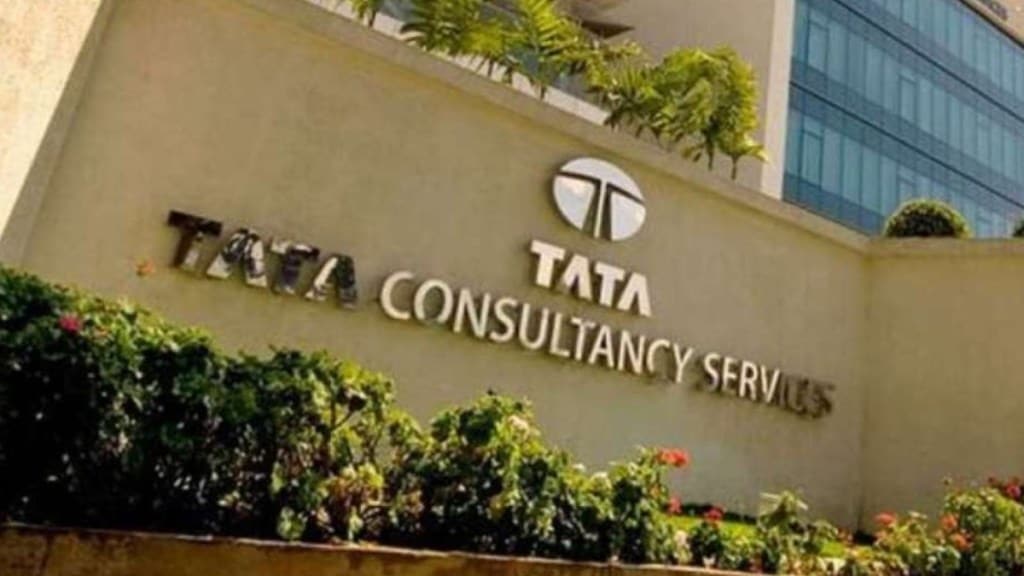Tata Consultancy Services (TCS) is expected to see a slow-paced recovery over the next few quarters, as deal conversions remain sluggish and clients continue to hold back discretionary tech spending, analysts said.
While the company has guided for an improvement in international business for FY26, multiple brokerages have flagged weak execution, project delays and a challenging macro environment as key near-term risks.
“The outlook of better growth in FY26 appears a tad optimistic,” analysts at Kotak Institutional Equities noted, adding that slippages in healthcare and BFSI continue to be a concern.
Axis Securities presented similar views, saying, “Prevailing uncertainties in large economies continue to pose short-term headwinds to the company’s growth prospects.”
TCS reported a 3.3% quarter-on-quarter revenue decline in constant currency terms for Q1FY26 — its sharpest fall in several quarters. The firm’s India revenue fell 31.4% sequentially, which the company attributed mainly to the ramp-down of Bharat Sanchar Nigam (BSNL) deal.
Most brokerages estimate a 210-280 basis point drag from it. International revenue also contracted by 0.5% q-o-q in CC terms, reflecting project deferrals and cautious client sentiment across verticals.
The TCS stock fell 3.46% on Friday to end trading at `3,265.4 on the BSE. The IT major announced its results on Thursday after market hours.
Deal wins for the quarter stood at $9.4 billion, down from $12.2 billion in Q4. While the pipeline remains strong, brokerages noted that ramp-ups have been slower than expected. “Softer deal conversions pushed out growth. Increase in deal duration and delay in work continue to be concerns,” Dolat Capital said.
Despite the topline miss, TCS managed to improve its Ebitda margin by 30 bps sequentially to 24.5%, aided by the wind-down of the low-margin BSNL contract, lower third-party costs and forex gains. “The margin expansion masks underlying pressures such as lower utilisation and increased hiring,” it added. TCS does not disclose quarterly utilisation numbers.
HDFC Securities attributed the margin gain to “lower third-party costs and currency tailwinds”, while IDBI Capital noted that continued investments in capacity and talent, including training 114,000 employees in advanced AI, weighed on short-term profitability.
On a constant currency basis, BFSI shrank 0.9% q-o-q, while retail & CPG fell 3.2% and communications & media declined 4.0%, making them the worst-performing verticals. Life sciences & healthcare contracted 1%, weighed down by regulatory and pricing pressures. In contrast, manufacturing and technology services grew 1.3% and 1.5% q-o-q, respectively, driven by client efforts to modernise legacy systems and reduce tech debt. The energy & utilities segment also posted sequential growth, up 2.9%.
Brokerages attributed the underperformance in BFSI to cautious client sentiment and slower decision cycles despite continued investments in platform modernisation and GenAI. “Spends were lowered on broader macro caution,” Dolat noted, while Kotak flagged slippages in large accounts, especially in Europe.
Retail & CPG were impacted by weak consumer sentiment and funding delays. “Retail spending remained muted due to macro uncertainty and a global tariff overhang,” HDFC Securities said.
In communications & media, analysts pointed to structural challenges, with clients re-evaluating business models amid stagnant subscriber growth. Dolat observed, “CME clients are reassessing delivery models and diversifying revenue streams, leading to a 4% sequential decline.”
Despite the softness in Q1 performance, most analysts remain constructive on the long-term potential. “TCS will need to strike a prudent balance between managing deflationary pressures and tapping into AI-led transformation opportunities,” Kotak said.
HDFC Securities expects international revenue to grow ~4% in FY26, driven by AI adoption and pent-up demand once macro clarity emerges.
